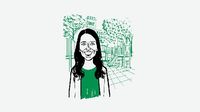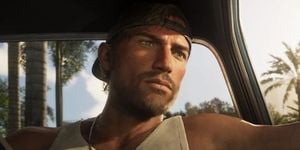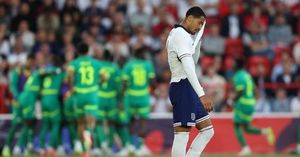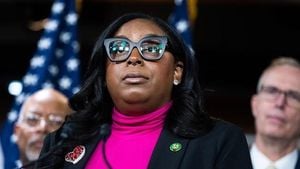Jacinda Ardern’s journey from a cautious political observer to New Zealand’s youngest prime minister is a compelling tale of resilience, leadership, and personal growth. Born the daughter of a policeman, Ardern was drawn to public service from an early age but remained wary of the often brutal nature of politics. Nevertheless, she found the courage to enter Parliament, rise to party leadership, and ultimately lead her country through some of its most challenging crises from 2017 to 2023.
Her tenure was marked by a series of high-profile emergencies that tested her leadership and the nation’s resolve. Among these were a devastating bovine disease outbreak impacting New Zealand’s vital agricultural sector, a tragic mass shooting at two mosques in Christchurch, severe floods and wildfires, and the global Covid-19 pandemic. Each crisis demanded a response that balanced compassion with decisive action, a balance Ardern managed to strike with a unique blend of empathy and pragmatism.
Ardern’s handling of the Christchurch shooting in particular garnered international attention. In the wake of that horrific event, she delivered a heartfelt speech that resonated deeply both at home and abroad. Her leadership helped push through a swift and effective assault-weapons ban, a legislative success that contrasted starkly with similar efforts elsewhere. This moment cemented her reputation as a leader capable of turning tragedy into meaningful change.
In 2019, Ardern’s global profile soared when she appeared on American television alongside comedian Stephen Colbert during his visit to New Zealand. Colbert’s ride from the airport was none other than the prime minister herself, and the segment included a memorable car ride where they greeted curious onlookers and sang “Bohemian Rhapsody.” The filming continued at her home, culminating in a barbecue with Lorde, New Zealand’s internationally acclaimed singer, and a later appearance by filmmaker Peter Jackson on Colbert’s show. These moments showcased Ardern’s approachable, down-to-earth side, endearing her to a worldwide audience.
During this period, Ardern was not just a political figure but also a symbol of modern leadership. At the United Nations General Assembly, while former President Donald Trump rambled from the lectern, Ardern quietly sat beside her fiancé, Clark Gayford, who cradled their newborn daughter, Neve. This image of family and leadership intertwined struck a chord globally, illustrating a new kind of political persona—one that combined strength with warmth.
However, the Covid-19 pandemic presented unprecedented challenges. New Zealand’s lockdowns, while unusually effective in controlling the virus’s spread, were also notably strict. Initially, these measures were popular, but over time, opposition grew. Protesters camped outside Parliament, and Ardern’s approval ratings suffered a significant decline. By 2023, she announced she would not seek a third term, candidly stating, “I no longer have enough in the tank.”
Since stepping down, Ardern has embraced a quieter life. She holds a fellowship at Harvard’s Kennedy School and lives in Cambridge with her husband, Clark Gayford, and their six-year-old daughter, Neve. Despite leaving office, she remains engaged in public discourse, recently traveling to New York to promote her memoir, A Different Kind of Power, and a documentary titled Prime Minister, which offers an intimate look at her time in office.
The documentary, much of which was filmed at home by Gayford, offers rare glimpses into Ardern’s personal life and the demands of leadership. Viewers see moments such as Ardern putting Neve to bed, then poring over stacks of public-health reports, or her exhausted reflection in a bathrobe as she prepares to announce border closures. Such candid footage reveals the human side of a role often seen only through the lens of public appearances and speeches.
Ardern’s early years also shaped her worldview. In 2005, she spent time in New York as part of her “overseas experience,” a rite of passage for many young New Zealanders. During that time, she volunteered at a soup kitchen, wandered through bookstores, and absorbed the city’s energy—all while living modestly on a friend’s couch in Park Slope. It was during this period she got an earring in her tragus, a small but lasting memento of her time abroad.
Her love for literature is evident; during her New York visit to promote her memoir, she browsed the poetry section at the Strand bookstore, leafing through works by Pablo Neruda and Wisława Szymborska. She also picked up a copy of Endurance: Shackleton’s Incredible Voyage, a fitting choice given her own leadership journey through turbulent times. The documentary even features footage of Ardern trekking through Antarctica in support of climate-change research, underscoring her commitment to global issues beyond New Zealand’s borders.
Despite the highs and lows of her political career, Ardern remains grounded and self-aware. She joked about her husband’s suggestion that she could have stayed longer in office if she had learned to delegate more, calling it a “full-blown mansplain.” Watching the documentary wasn’t exactly a pleasure for her, she admitted, though she recognized its value for posterity.
Jacinda Ardern’s story is not just about political success or crisis management. It is about redefining leadership in the 21st century—embracing vulnerability, empathy, and a commitment to public service that transcends traditional political gamesmanship. Her memoir and the documentary offer a window into this different kind of power, one that resonates far beyond New Zealand’s shores.





